Risk Shifting in Financial Markets and Sustainable Finance
The contemporary literature on financial intermediation suggests that banks play an important role in the transition towards a sustainable economy. The research group ‘Risk Shifting in Financial Markets and Sustainable Finance’ contributes to this debate by studying lenders' risk shifting incentives, their choices in supporting sustainable business, and how sustainable finance and legal innovations affect firms and households.
First, we analyze how banks respond to climate transition risks. Specifically, we investigate whether banks manage these risks by offloading loans to environmentally harmful firms or by incorporating sustainability pricing provisions into loan contracts. Our ongoing research delves into the role of banking supervision in facilitating the transition to net-zero, specifically by assessing the impact of climate stress tests on banks' lending practices. We also examine how depositors, firms, and financial institutions manage various forms of biodiversity risk.
Second, we illustrate the choice between risk pricing and risk shifting through securitisation by financial institutions. From a household finance perspective, we discuss how mortgage foreclosure laws and mortgage pricing policies should be designed to mitigate moral hazard of lenders and borrowers. We also highlight the effect of zombie mortgage laws on banks and non-bank lenders, and the implications arising for housing markets.
Another line of research aims to establish evidence of how financial regulation contributes to securitisation booms, which are considered to be at the root of the recent boom and bust cycles in housing markets. Specifically, we shed light on how banking deregulation and financial development increase the probability of a bank operating an originate-to-distribute model in the lead up to the financial crisis that started in 2007.
Finally, the research group investigates the role of financial institutions in supporting firms to mitigate risk from supply chain disruptions triggered by the Covid-19 pandemic.
Workpackage 1: Do financial institutions provide sustainable finance?
Workpackage 2: How do banks choose between risk pricing and risk shifting?
Workpackage 3: The Impact of Banking Supervision and Regulation on Financial Intermediaries
Research Cluster
Financial Resilience and RegulationYour contact

- Department Financial Markets
Refereed Publications

Tax Authority Attention and Financial Reporting
in: International Journal of Banking, Accounting and Finance, forthcoming
Abstract
<p>We study the effects of Tax Authority (IRS) attention on a firm’s financial reporting. We explore whether firms institute a higher degree of accounting conservatism in response to IRS monitoring. Using data on IRS acquisition of public firms’ 10-K financial disclosures to proxy for IRS attention, we find that when firms are under IRS attention, they tend to initiate higher levels of unconditional and, to some extent, conditional accounting conservatism. We alleviate some of the endogeneity concerns by using pre- and post-IRS attention environments between the treated group (firms with IRS attention) and a propensity score that matches the control group of firms (no IRS attention). These results withstand several robustness tests and subsample analyses.</p>

Deposit Competition and Mortgage Securitization
in: Journal of Money, Credit and Banking, forthcoming
Abstract
<p>We study how deposit competition affects a bank's decision to securitize mortgages. Exploiting the state-specific removal of deposit market caps across the U.S. as a source of competition, we find a 7.1 percentage point increase in the probability that banks securitize mortgage loans. This result is driven by an 11 basis point increase in deposit costs and corresponding reductions in banks' deposit holdings. Our results are strongest among banks that rely more on deposit funding. These findings highlight a hitherto undocumented and unintended regulatory cause that motivates banks to adopt the originate-to-distribute model.</p>
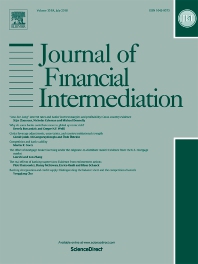
Carbon Transition Risk and Corporate Loan Securitization
in: Journal of Financial Intermediation, forthcoming
Abstract
We examine how banks manage carbon transition risk by selling loans given to polluting borrowers to less regulated shadow banks in securitization markets. Exploiting the election of Donald Trump as an exogenous shock that reduces carbon risk, we find that banks’ securitization decisions are sensitive to borrowers’ carbon footprints. Banks are more likely to securitize brown loans when carbon risk is high but swiftly change to keep these loans on their balance sheets when carbon risk is reduced after Trump’s election. Importantly, securitization enables banks to offer lower interest rates to polluting borrowers but does not affect the supply of green loans. Our findings are more pronounced among domestic banks and banks that do not display green lending preferences. We discuss how securitization can weaken the effectiveness of bank climate policies through reducing banks’ incentives to price carbon risk.
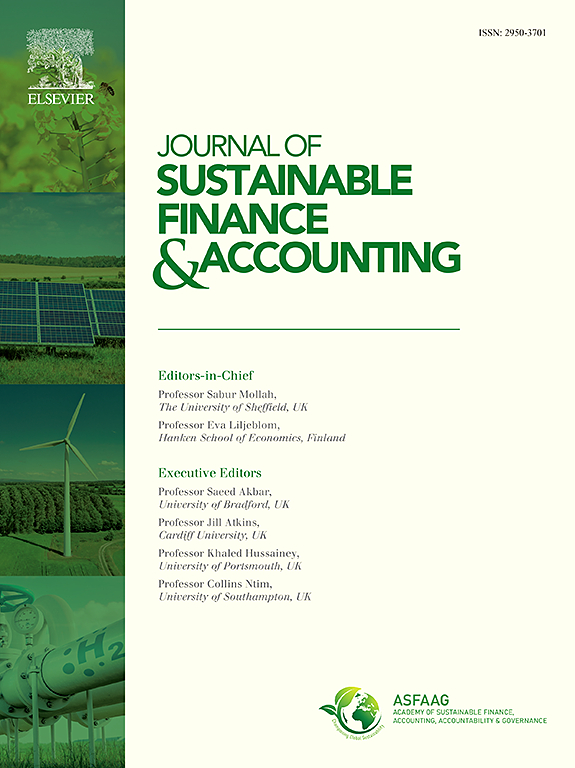
Climate Change Exposure and the Value Relevance of Earnings and Book Values of Equity
in: Journal of Sustainable Finance and Accounting, March 2024
Abstract
<p>We investigate whether a firm’s exposure to climate change, as proxied by disclosures during quarterly earnings conference calls, provides forward-looking information to investors regarding the long-term association of stock prices with current earnings and the book values of equity. Following a key regulatory mandate around the formation of the cap-and-trade program to reduce emissions related to climate change, firms’ climate change exposure decreases the association between current earnings and stock prices while increasing the relevance of book values of equity (i.e., historical earnings). However, these relationships flip when the sentiment around climate change exposure is negative, suggesting that the risks related to climate change exposure provide forward-looking information to investors when they evaluate the ability of current earnings to predict firm values. Such a relationship is stronger for new economy firms and is sensitive to conservative accounting. We also observe that the inclusion of climate change disclosure to our models improves the joint ability of earnings and book values to predict stock prices.</p>

Gender Pay Gap in American CFOs: Theory and Evidence
in: Journal of Corporate Finance, June 2023
Abstract
Studies document persistent unexplained gender-based wage gap in labor markets. At the executive level, where skill and education are similar, career interruptions and differences in risk preferences primarily explain the extant gender-based pay gap. This study focuses on CFO compensation contracts of Execucomp firms (1992–2020) and finds no gender-based pay gap. This paper offers several explanations for this phenomenon, such as novel evidence on the risk preferences of females with financial expertise and changes in the social and regulatory climate.
Working Papers
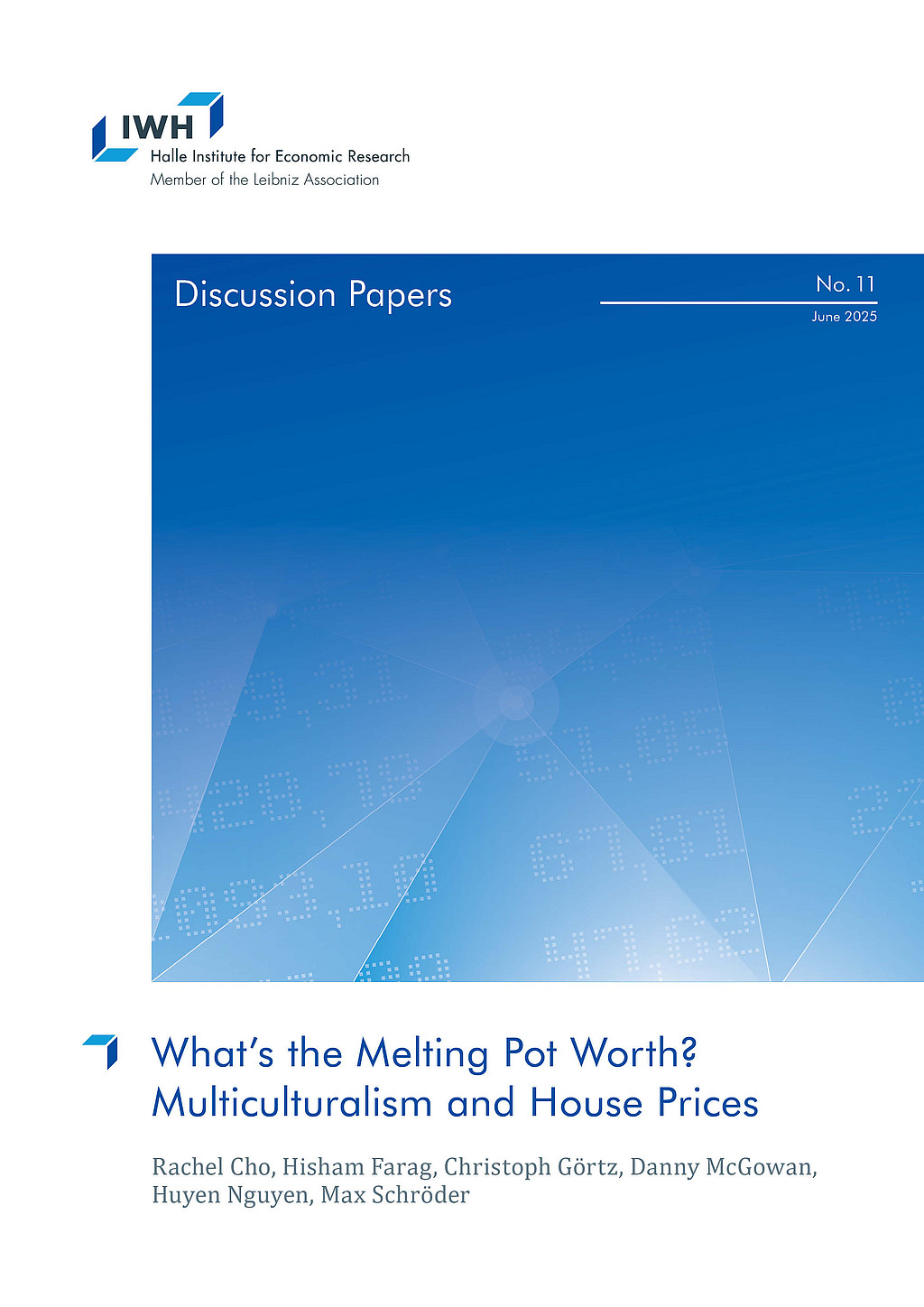
What’s the Melting Pot Worth? Multiculturalism and House Prices
in: IWH Discussion Papers, No. 11, 2025
Abstract
<p>Is there a multicultural neighborhood price premium? We exploit plausibly exogenous variation in British colonization patterns in Northern Ireland during the early 1600s which created neighborhoods of varying religious composition that persists until today. These religious groups are culturally distinct, but are observationally equivalent ethnically and socioeconomically. A standard deviation increase neighborhood-level multiculturalism raises house prices by 9.6%. Multiculturalism raises property prices by increasing asset liquidity and housing demand as a wider spectrum of society demand houses in these areas. The findings and mechanism contrast sharply with prior evidence showing negative relationships due to homophily, social networks, and identification challenges.</p>
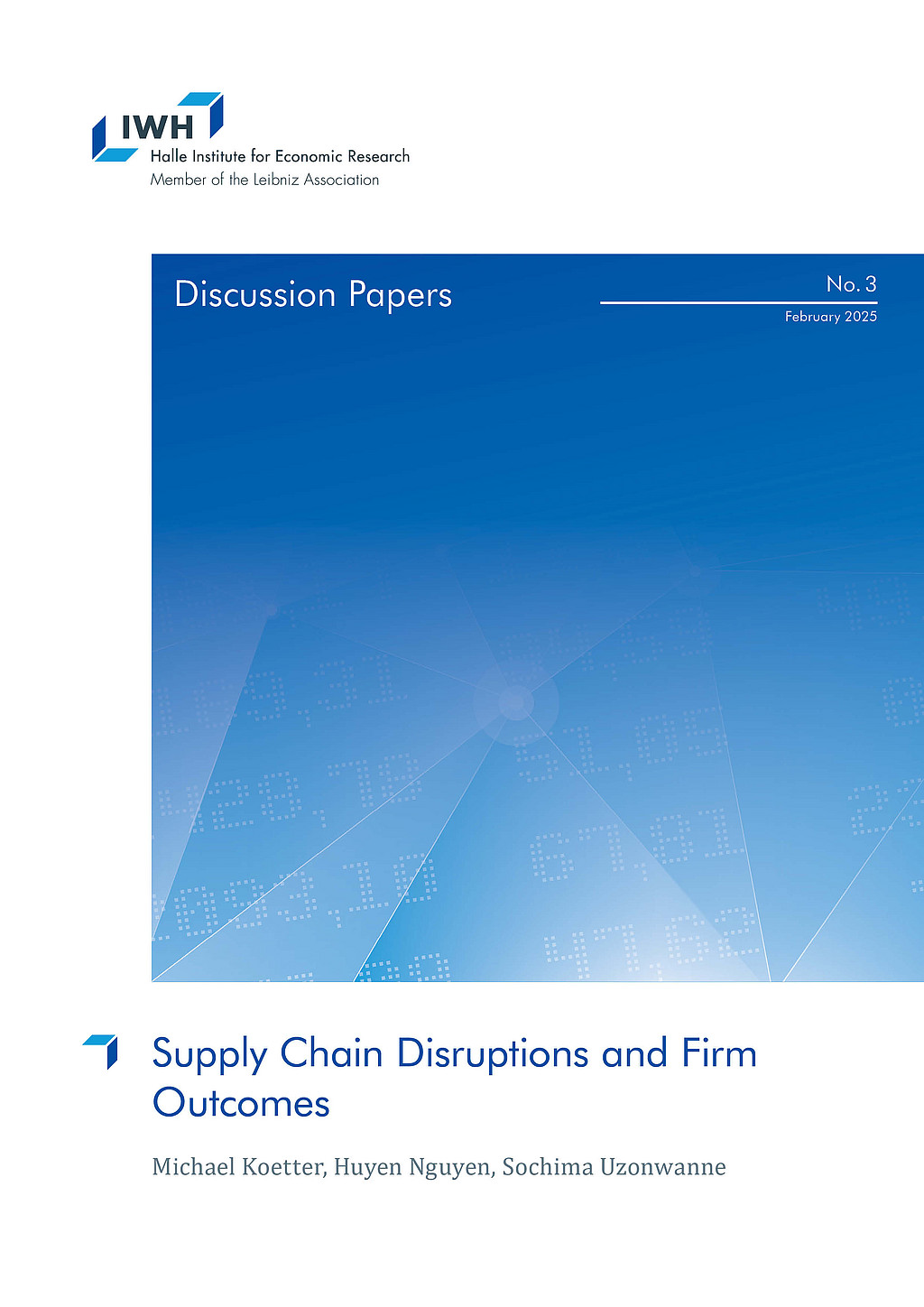
Supply Chain Disruptions and Firm Outcomes
in: IWH Discussion Papers, No. 3, 2025
Abstract
<p>This paper examines how firms’ exposure to supply chain disruptions (SCD) affects firm outcomes in the European Union (EU). Exploiting heterogeneous responses to workplace closures imposed by sourcing countries during the pandemic as a shock to SCD, we provide empirical evidence that firms in industries relying more heavily on foreign inputs experience a significant decline in sales compared to other firms. We document that external finance, particularly bank financing, plays a critical role in mitigating the effects of SCD. Furthermore, we highlight the unique importance of bank loans for small and solvent firms. Our findings also indicate that highly diversified firms and those sourcing inputs from less distant partners are less vulnerable to SCD.</p>
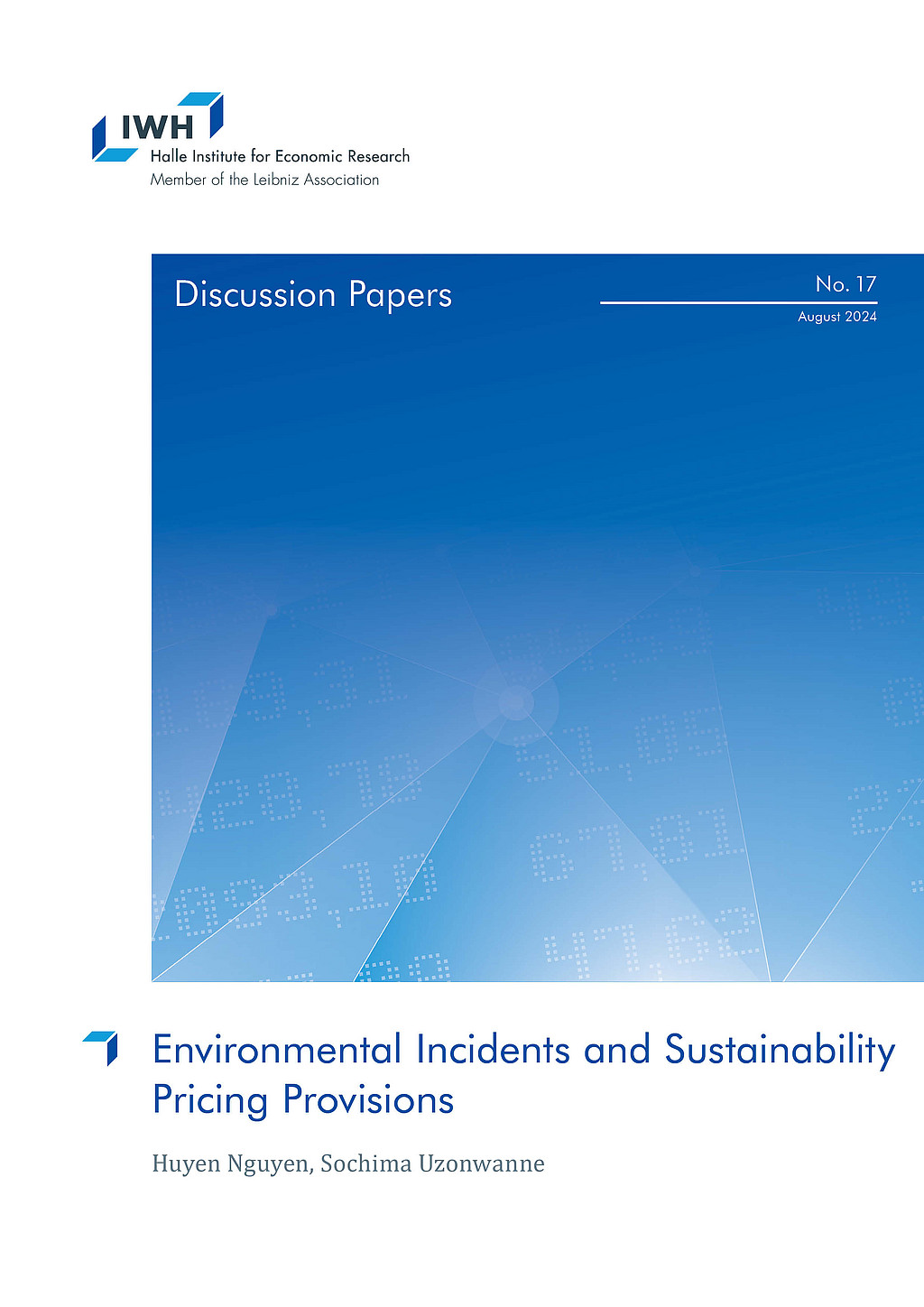
Environmental Incidents and Sustainability Pricing
in: IWH Discussion Papers, No. 17, 2024
Abstract
<p>We investigate whether lenders employ sustainability pricing provisions to manage borrowers’ environmental risk. Using unexpected negative environmental incidents of borrowers as exogenous shocks that reveal information on environmental risk, we find that lenders manage borrowers’ environmental risk by conventional tools such as imposing higher interest rates, utilizing financial and net worth covenants, showing reluctance to refinance, and demanding increased collateral. In contrast, the inclusion of sustainability pricing provisions in loan agreements for high environmental risk borrowers is reduced by 11 percentage points. Our study suggests that sustainability pricing provisions may not primarily serve as risk management tools but rather as instruments to attract demand from institutional investors and facilitate secondary market transactions.</p>
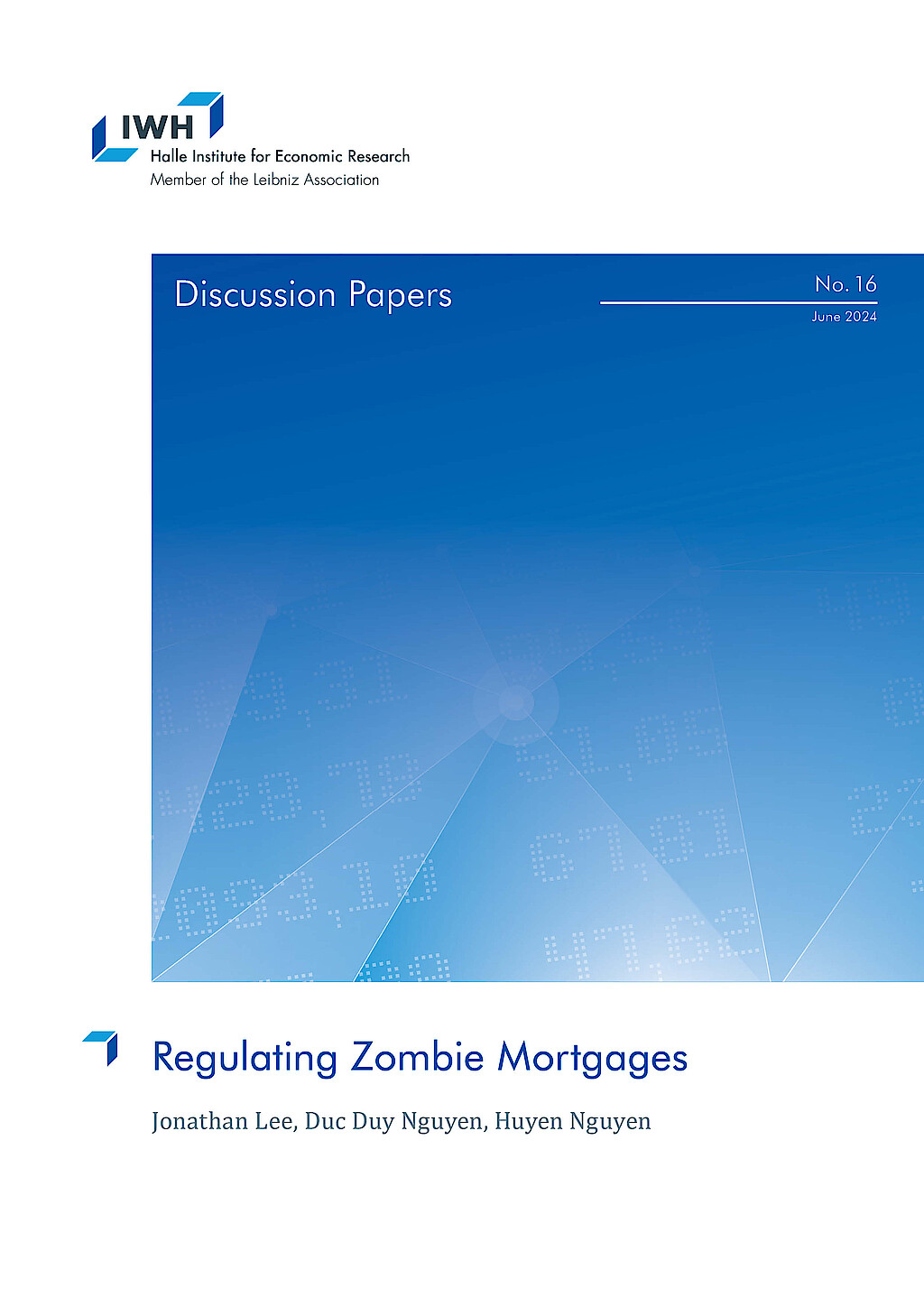
Regulating Zombie Mortgages
in: IWH Discussion Papers, No. 16, 2024
Abstract
Using the adoption of Zombie Property Law (ZL) across several US states, we show that increased lender accountability in the foreclosure process affects mortgage lending decisions and standards. Difference-in-differences estimations using a state border design show that ZL incentivizes lenders to screen mortgage applications more carefully: they deny more applications and impose higher interest rates on originated loans, especially risky loans. In turn, these loans exhibit higher ex-post performance. ZL also affects lender behavior after borrowers become distressed, causing them to strategically keep delinquent mortgages alive. Our findings inform the debate on policy responses to foreclosure crises.
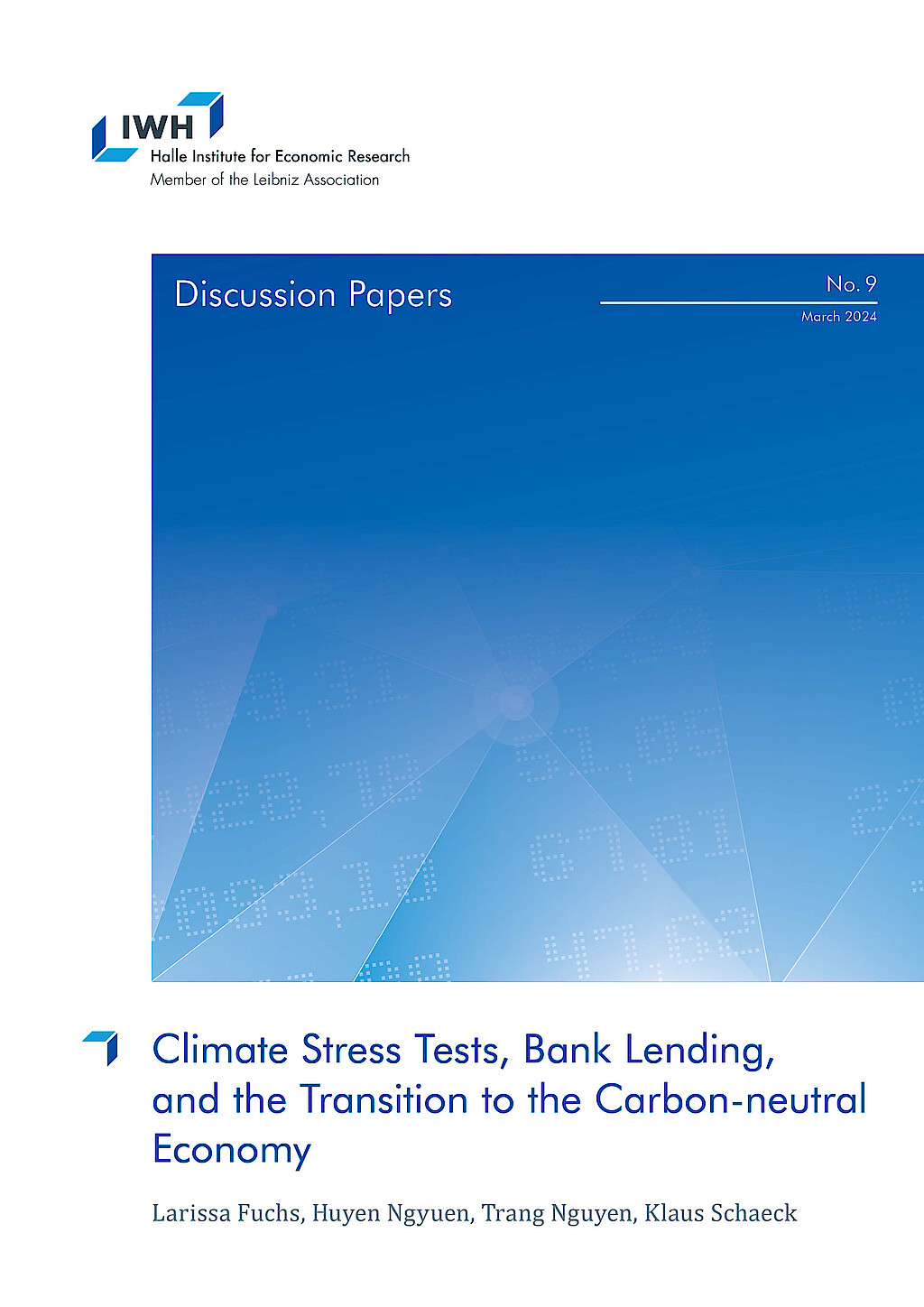
Climate Stress Tests, Bank Lending, and the Transition to the Carbon-neutral Economy
in: IWH Discussion Papers, No. 9, 2024
Abstract
We ask if bank supervisors’ efforts to combat climate change affect banks’ lending and their borrowers’ transition to the carbon-neutral economy. Combining information from the French supervisory agency’s climate pilot exercise with borrowers’ emission data, we first show that banks that participate in the exercise increase lending to high-carbon emitters but simultaneously charge higher interest rates. Second, participating banks collect new information about climate risks, and boost lending for green purposes. Third, receiving credit from a participating bank facilitates borrowers’ efforts to improve environmental performance. Our findings establish a hitherto undocumented link between banking supervision and the transition to net-zero.





